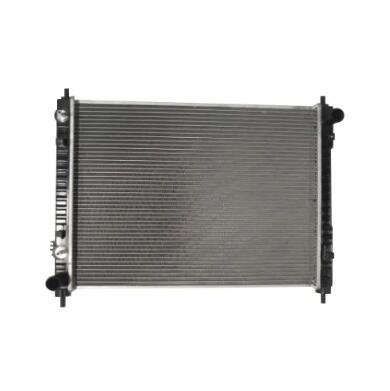How to Extend the Lifespan of Your Automotive Aluminum Plastic Radiator
2024-09-10
The aluminum plastic radiator in your vehicle is a key component that regulates engine temperature and prevents overheating. Without proper care, it can develop issues that lead to costly repairs or even engine damage. This blog will focus on specific steps and strategies to extend the lifespan of your radiator, helping to avoid unnecessary breakdowns and expensive replacements.
1. Use the Right Coolant Mixture
One of the most critical factors in extending the life of your radiator is using the correct coolant mixture.
- Coolant-to-Water Ratio: Ensure that you’re using the proper ratio of coolant to distilled water, typically a 50/50 mix. Using too much water can reduce the coolant’s efficiency, while too much coolant can cause overheating.
- Avoid Tap Water: Always use distilled water instead of tap water when mixing coolant, as tap water contains minerals that can cause scaling and corrosion in the radiator.
2. Regularly Check for Corrosion
Corrosion is one of the main threats to aluminum radiators, as it can lead to leaks and reduced cooling efficiency.
- Anti-Corrosion Additives: Make sure your coolant contains corrosion inhibitors designed to protect aluminum components. These additives help prevent rust and corrosion, extending the life of the radiator.
- Inspect for Signs: Periodically inspect the radiator for any signs of corrosion, particularly around the plastic end tanks and the aluminum fins. Early detection can prevent more severe damage.
3. Monitor and Maintain Proper Engine Temperature
Overheating can cause severe damage to your radiator and engine. Regularly monitoring your engine’s temperature and taking action when it rises can prevent long-term issues.
- Monitor Dashboard: Keep an eye on the temperature gauge in your vehicle. If the temperature starts rising above the normal range, pull over and allow the engine to cool before checking the coolant level and radiator condition.
- Thermostat Check: Ensure your vehicle’s thermostat is functioning correctly. A faulty thermostat can cause the radiator to overheat or not circulate coolant properly.
4. Replace Old or Damaged Parts Promptly
Small issues, like a cracked hose or a worn-out radiator cap, can escalate into larger problems if not addressed quickly.
- Timely Hose Replacement: Inspect the hoses for cracks or wear and replace them immediately to avoid coolant leaks that can damage the radiator.
- Cap Replacement: If you notice that the radiator cap is no longer maintaining pressure, replace it immediately to prevent overheating and coolant loss.
5. Use an Aluminum-Safe Radiator Cleaner
Over time, deposits from the coolant and other particles can build up inside the radiator, reducing its effectiveness. Using an aluminum-safe radiator cleaner can help remove these deposits without damaging the aluminum or plastic components.
- Radiator Cleaning Solution: Use a cleaner designed specifically for aluminum radiators to remove scale, rust, and sludge that may accumulate inside.
- Follow Instructions: Always follow the manufacturer’s instructions when using cleaning solutions to avoid damaging the radiator’s internal components.
6. Watch for Early Warning Signs
Detecting problems early can save your radiator from catastrophic failure. Pay attention to the following warning signs:
- Overheating: If your engine consistently overheats, it’s an indication that your radiator may not be functioning properly.
- Unusual Noises: A bubbling or gurgling sound in the engine bay could indicate trapped air or a blockage in the radiator.
- Coolant Discoloration: Check the color of your coolant. If it appears rusty or cloudy, it’s time to replace it and possibly flush the radiator.
Conclusion
Maintaining your automotive aluminum plastic radiator is key to its longevity and performance. By using the right coolant mixture, keeping an eye out for early warning signs, and taking preventive measures like cleaning and part replacement, you can extend the life of your radiator and keep your engine running smoothly. Regular maintenance is essential to avoid costly repairs and ensure your vehicle’s cooling system operates at peak efficiency for years to come.



